Great leaders intentionally make time for continued education. As difficult as it may be to step away from the office, reading a variety of books on leadership is an important key to refueling and refocusing yourself as a leader. For instance, it helps reveal your strengths, weaknesses, and provide the tools needed for innovation and growth.
Ready to reach your full potential as a leader? The following list of leadership books helps build a solid foundation of team-building and problem solving skills.
The 15 top leadership books every great leader needs on their bookshelf:
1. The 21 Irrefutable Laws of Leadership
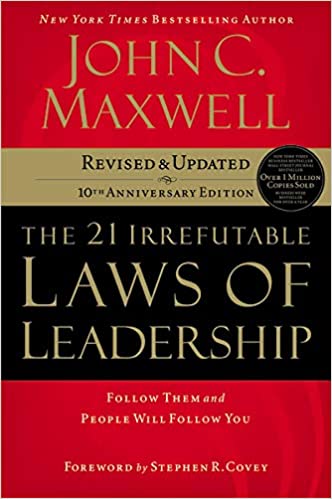
Author: John Maxwell
One-Sentence Description: Maxwell finds the commonalities of great leaders, while also guiding readers through the 21 universal laws of successful leadership.
Favorite Quote: “I believe the bottom line in leadership isn’t how far we advance ourselves but how far we advance others. That is achieved by serving others and adding value to their lives.”
Why You Should Read It: There’s a reason it’s ranked as one of the best leadership books of all time. Entrepreneurs, executives, and managers find Maxwell’s advice useful because it’s practical and easy to follow. Furthermore, The 21 Irrefutable Laws of Leadership helps high performers figure out what they’ve been doing right and play into their strengths. Additionally, the book is beneficial because it offers plenty of ideas on how to fine-tune weaker leadership qualities.
2. Good to Great: Why Some Companies Make the Leap… and Others Don’t
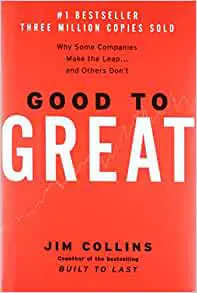
Author: Jim Collins
One-Sentence Description: This book follows a five-year study that determines how “good” companies become great, beat their competitors, and achieve long-lasting success.
Favorite Quote: “Greatness is not a function of circumstance. Greatness, it turns out, is largely a matter of conscious choice, and discipline.”
Why You Should Read It: Good to Great: Why Some Companies Make the Leap… and Others Don’t emphasizes the point that success doesn’t happen overnight. For entrepreneurs and leaders who feel frustrated, tired, and out of steam, this book helps reinvigorate drive and passion. Additionally, it’s comforting to know that many of the difficulties business owners experience as they grow aren’t uncommon. In fact, growing pains are evidence that a company is developing. Overall, the core message is progress is a process.
3. Start with Why
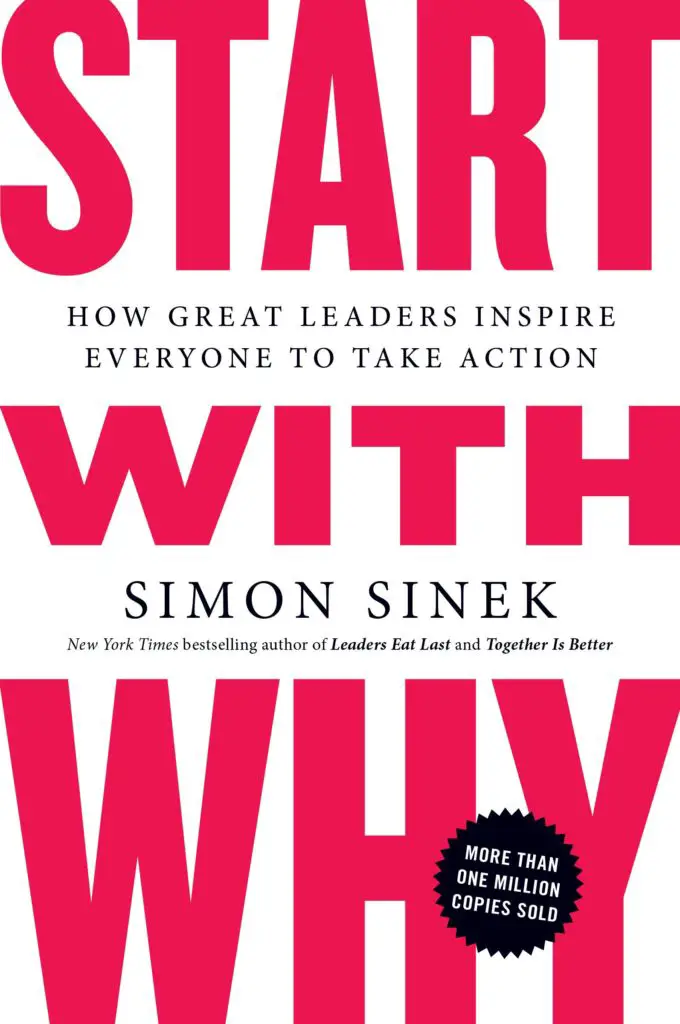
Author: Simon Sinek
One-Sentence Description: Sinek provides a three-step framework that purpose-driven leaders use to inspire people to take action.
Favorite Quote: “People don’t buy what you do; they buy why you do it. And what you do simply proves what you believe.”
Why You Should Read It: Start with Why is one of the best leadership books for receiving a foundational understanding of what it means to lead with purpose. Those wanting to refresh and revive their organizations should read this book first. Without a doubt, Start with Why changes the game on how leaders guide their companies. It explains the importance of putting purpose at the center of the business so owners and executives don’t lose focus on fulfilling the company’s mission. An understanding of how to lead with why has the power to truly transform any business for the better.
4. Think and Grow Rich
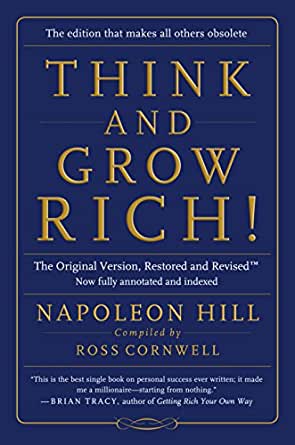
Author: Napoleon Hill
One-Sentence Description: Published in 1937, Think and Grow Rich studies the lives of wealthy individuals such as Henry Ford and Andrew Carnegie, defining 13 habits successful people share.
Favorite Quote: “The starting point of all achievement is DESIRE. Keep this constantly in mind. Weak desire brings weak results, just as a small fire makes a small amount of heat.”
Why You Should Read It: Consistently ranked as one of the best books on leadership of all time, Think and Grow Rich helps readers understand the unique mindset of high performers. On the whole, Hill spent 25 years researching, analyzing, and understanding what makes people successful. Through 500 interviews, he found and wrote a formula for prosperity. Undoubtedly, the directive strategies are easily applicable, motivational, and provide timeless wisdom to anyone interested in leadership.
5. Wooden on Leadership
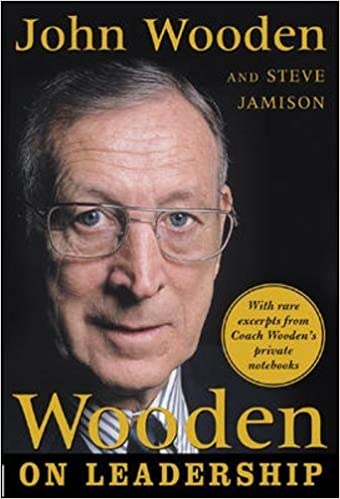
Author: John Wooden
One-Sentence Description: Famed basketball coach John Wooden explains the 15 principles of success and the characteristics great leaders share.
Favorite Quote: “The best leaders are lifelong learners; they take measures to create organizations that foster and inspire learning throughout. The most effective leaders are those who realize it’s what you learn after you know it all that counts most.”
Why You Should Read It: Wooden on Leadership inspires leaders through adages and advice given by one of the most successful coaches in sports history. In summary, Wooden teaches business professionals how to build a great team people love belonging to through his motivational words focused on morals and ethics. Overall, this is a must-read for anyone who wants to build an inspiring, sustainable team culture within their organization.
6. Extreme Ownership
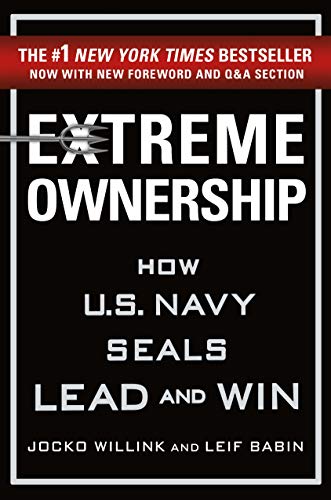
Author: Jocko Willink and Leif Babin
One-Sentence Description: Written by two Navy SEAL officers, this best-selling book relates their special operations experience to the leadership qualities all business owners, executives, and managers should possess.
Favorite Quote: “Implementing Extreme Ownership requires checking your ego and operating with a high degree of humility. Admitting mistakes, taking ownership, and developing a plan to overcome challenges are integral to any successful team.”
Why You Should Read It: The unique, interesting angle the authors take creates a fresh perspective within the genre. While some professionals might not feel this book would be applicable to their businesses, Extreme Ownership teaches lessons that help leaders understand what it truly means to lead—not manage or direct—others. With unique messaging filled with real-life experience, the book additionally provides instruction on how to successfully develop high-performing teams that can fulfill even the most difficult mission.
7. Dare to Lead
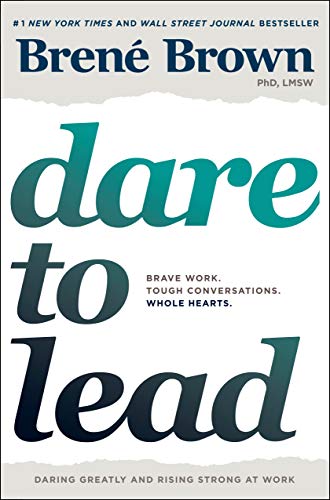
Author: Brené Brown
One-Sentence Description: Dare to Lead focuses on building a strong culture at work through vulnerability, courage, core values, and trust.
Favorite Quote: “I define a leader as anyone who takes responsibility for finding the potential in people and processes, and who has the courage to develop that potential.”
Why You Should Read It: Dare to Lead is one of the best leadership books for building team culture. Brown, an accomplished researcher with a Ph.D. in social work, argues the long-standing belief that vulnerability correlates to “weakness” is false. In fact, she writes an entire book to prove that being vulnerable is both courageous and brave. Specifically, this trait is one of the best leadership qualities found in business owners, executives, and managers. For this reason, Dare to Lead is perfect for anyone interested in creating a constructive, supportive workplace. It teaches people how to connect, be more empathetic, and show up with authenticity.
8. The Effective Executive
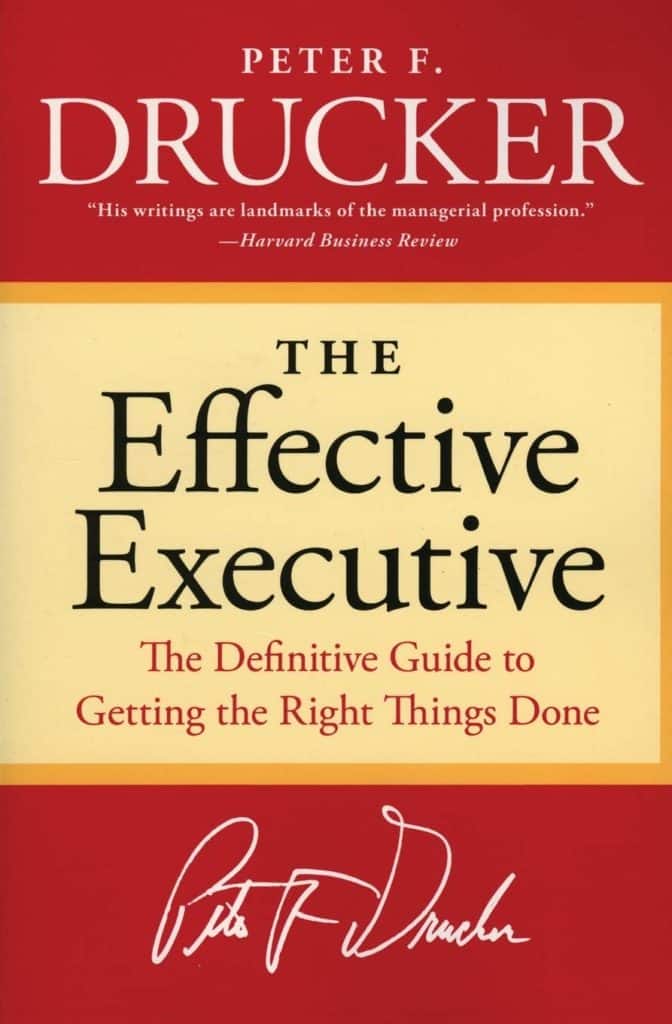
Author: Peter F. Drucker
One-Sentence Description: This book focuses on effectiveness as a form of self-discipline—a requirement for all leaders (and a skill anyone can learn).
Favorite Quote: “Intelligence, imagination, and knowledge are essential resources, but only effectiveness converts them into results.”
Why You Should Read It: Success is dependent on effectiveness. From exacting change to inspiring employees, this is a quality leaders can’t afford to lack. Nevertheless, many business owners and executives unknowingly or knowingly behave, act, and communicate in ways that don’t positively impact their organizations. For example, ineffective leaders lack emotional intelligence and don’t dedicate themselves to learning how to become stewards of their employees and customers. In essence, The Effective Executive is for people who want to actively learn how to work on eliminating ineffective leadership traits and become drivers of positive impact.
9. 7 Habits of Highly Effective People
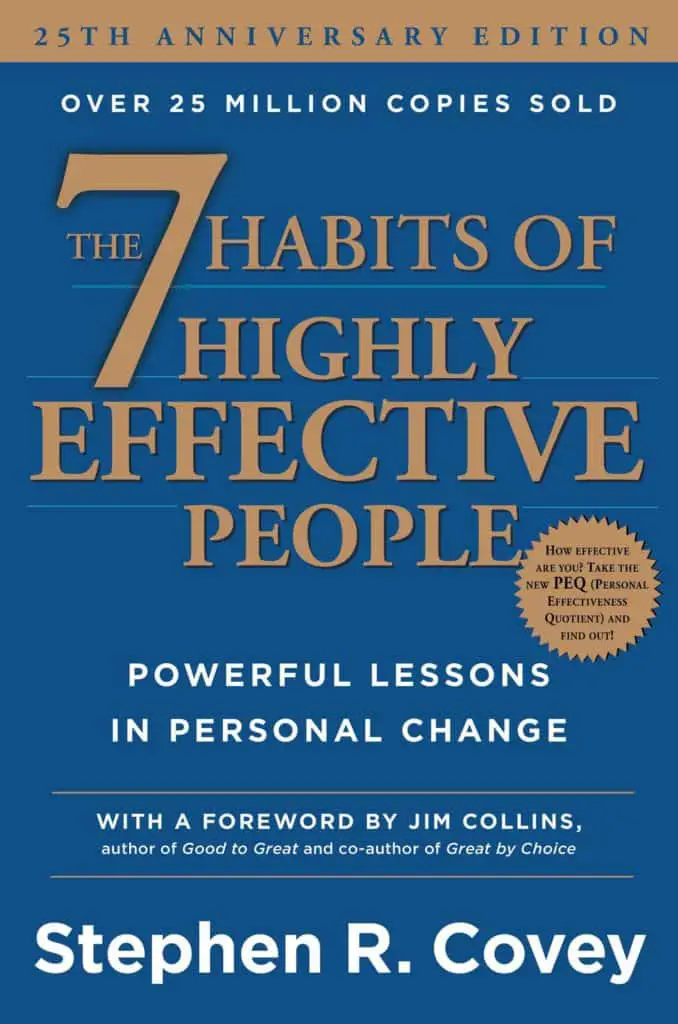
Author: Stephen R. Covey
One-Sentence Description: Covey believes effective people align their values with universal principles—the seven habits describe a person’s relation to independence, interdependence, and continuous improvement.
Favorite Quote: “As you care less about what people think of you, you will care more about what others think of themselves.”
Why You Should Read It: While this leadership book has a simple title, the pages inside reveal Covey’s philosophical nature. For instance, Seven Habits of Highly Effective People asks readers to examine themselves by challenging their beliefs, perception, and world view. This book is important for leaders at all levels because it essentially teaches people how to be better, more connected, empathetic humans.
10. The Art of War

Author: Sun Tzu
One-Sentence Description: The Art of War teaches leaders how to create and implement strategic initiatives.
Favorite Quote: “In the midst of chaos, there is also opportunity.”
Why You Should Read It: Out of all the best leadership books mentioned, this 5th century B.C. military treatise is the oldest. There’s a reason it’s continued inspiring generations of strategic thinkers. While it was written for military leaders, the text translates well for business owners and executives who are responsible for developing and executing the company’s vision. In short, it takes readers through 13 chapters, each dedicated to a particular stage in the strategic implementation process.
11. Awaken the Giant Within

Author: Tony Robbins
One-Sentence Description: World-renowned motivational speaker and coach Tony Robbins helps readers replace their bad habits, retrain their mindset, and increase their happiness so they can step into their greatness.
Favorite Quote: “Enjoy making decisions. You must know that in any moment a decision you make can change the course of your life forever . . . If you really want your life to be passionate, you need to live with this attitude of expectancy.”
Why You Should Read It: Published in 1991, Awaken the Giant Within is full of the passion and charged words people would expect from a young Tony Robbins. As a coach focused on elevating people to their full potential, this is a great read for leaders dissatisfied by mediocracy. Although this book is more targeted toward young entrepreneurs and new business owners, it is a powerful read for those who want to live extraordinary lives as leaders.
12. The 5 Dysfunctions of a Team
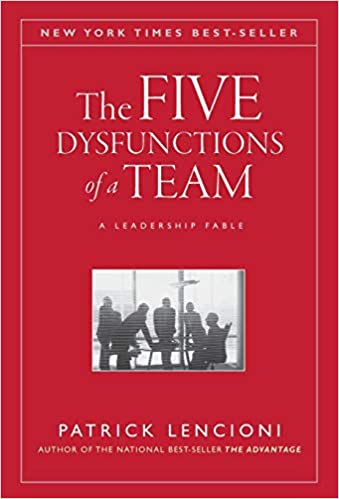
Author: Patrick Lencioni
One-Sentence Description: Lencioni uses his knack for storytelling to resolve five common dysfunctional behaviors that inhibit even the best teams.
Favorite Quote: “Not finance. Not strategy. Not technology. It is teamwork that remains the ultimate competitive advantage, both because it is so powerful and so rare.”
Why You Should Read It: Leaders must know how to both guide their teams and be a team player. This book stresses the importance of having a cohesive team dynamic. While the book is a fictional fable, it is a story many business owners and executives struggle with. Companies cannot succeed unless their teams work together. For this reason, the book points out dysfunctional behaviors that harm team culture. As a result, leaders can repair and avoid toxicity within their organizations using this insight.
13. How to Win Friends and Influence People
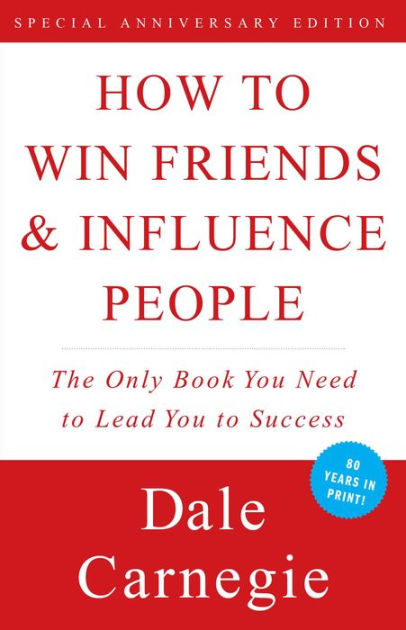
Author: Dale Carnegie
One-Sentence Description: Carnegie’s book provides insight on how likability leads to strong relationships, new friends and influence.
Favorite Quote: “You can’t win an argument. You can’t because if you lose it, you lose it; and if you win it, you lose it.”
Why You Should Read It: First published in 1936, How to Win Friends and Influence People provides timeless lessons on how to win people over without using manipulation and morally unethical tactics. In essence, this book is a great read that proves likability goes a long way in life. The knowledge provided in Carnegie’s work is invaluable to leaders and customer-facing team members, such as sales teams. Additionally, the book teaches you how to advance your interpersonal skills.
14. Team of Rivals
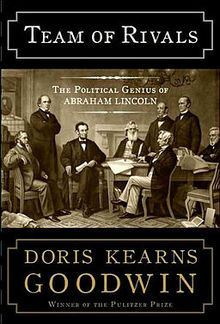
Author: Doris Kearns Goodwin
One-Sentence Description: In this Lincoln biography, Kearns shows how the president united his former political competitors to abolish slavery and win the Civil War.
Favorite Quote: “In order to ‘win a man to your cause,’ Lincoln explained, you must first reach his heart, ‘the great high road to his reason.‘”
Why You Should Read It: This leadership book is a masterclass on leadership and an interesting read for anyone who loves history. It shows how important it is to toss your ego aside when working with others. Rather than punishing his rivals, Lincoln welcomed several of these people into his cabinet and created a unified front that was capable of holding the country together. While the book has a rather political motif, it teaches executive leaders the value of bringing teams together toward a collective cause. Personal beliefs of individual group members may vary but there can be healthy competition among them, as long as it doesn’t get in the way of a larger, common objective.
15. 15 Invaluable Laws of Growth
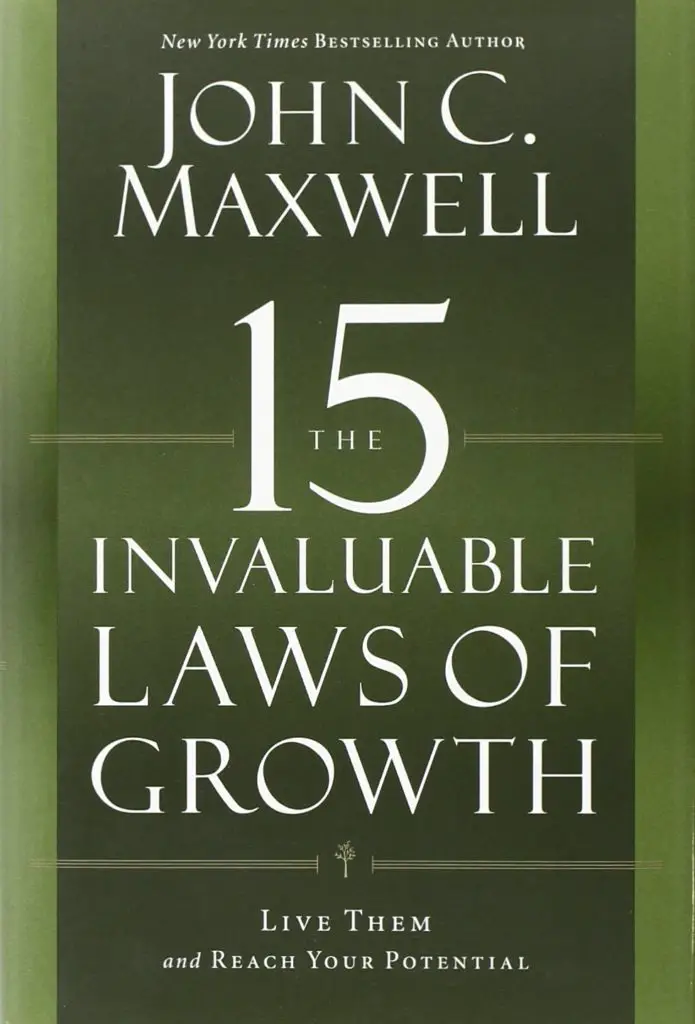
Author: John C. Maxwell
One-Sentence Description: The third book in Maxwell’s “Laws” series provides readers with a new set of principles designed for growth and self-development.
Favorite Quote: “Most people who decide to grow personally find their first mentors in the pages of books.”
Why You Should Read It: The continuous path of self-improvement differentiates a good leader from a great leader. When starting a business or accepting a leadership role, a person is really accepting the responsibility of dedicating their life to learning how to become better for those they’re responsible for guiding. To summarize, Maxwell helps people understand the required growing process and how to apply it to everyday life.
Create a Goal for Monthly Leadership Education
Improving leadership skills by reading books requires an insatiable desire for applicable knowledge. However, those in leadership positions live busy lives, so it can be difficult to find time for continued education. This is why scheduling time on the calendar for learning and development is an important component of effective time management. Furthermore, doing so also helps keep people accountable for developing their leadership qualities and abilities.
Get started by:
- Selecting five books from this list.
- Determining how much time it will take to finish each book.
- Setting reading completion goals.
- Meeting the established deadline.
- Starting the process again.
Making reading a habit keeps leaders continuously learning. It’s also a great idea to share what you’re learning. For example, after finishing a book, write an encouraging, personal message on the cover page and pass it along to the friend, coworker, or employee it would best serve.
